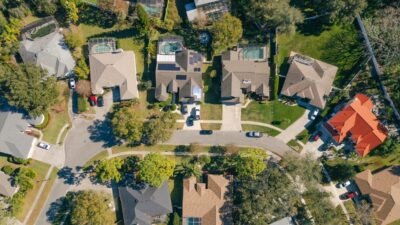Drop the Ship-pers: FedEx, UPS Downgraded as US Policy Bites Into Import Revenue
According to US Customs, untaxed “de minimis” shipments accounted for 92% of all cargo entering the US, or 4 million packages a day.

Sign up for smart news, insights, and analysis on the biggest financial stories of the day.
A leading bank says investors should drop their hopes for drop-ship giants UPS and FedEx.
Both were downgraded by Bank of America on Thursday, as the closure of a loophole for cheap packages becomes an expensive headache for the cargo industry and retailers.
‘De Majoris’
The leading factor clouding the business outlook for UPS and FedEx, of course, is President Donald Trump’s decision to end the so-called de minimis exemption. And, unlike IRL clouds on a postal route, the issue can’t be addressed with a simple, trusty raincoat. Halted on August 29, the de minimis policy allowed low-value packages under $800 to enter America duty-free. According to US Customs, these untaxed shipments accounted for 92% of all cargo entering the US, or 4 million packages a day.
Naturally, that means a substantial number of UPS and FedEx shipments are impacted. Or, as Bank of America analyst Ken Hoexter colorfully put it in a note Thursday: “The de minimis impact is de majoris.” BofA estimates International Priority & Economy packages make up 17% of FedEx revenues and 16% of UPS revenues, or about 1.1 million out of the 17 million daily packages at FedEx and 1.7 million out of the 20 million at UPS. With many of those packages now subject to import taxes, the fear is that demand for e-commerce goods from abroad, like China’s Temu and Shein, will fall. It’s not just online merchants: Already, retailers Lululemon and Kate Spade-owner Tapestry have said they expect their profits to take hits in the tens of millions of dollars this year from the policy shift. BofA says these signs require a new outlook on UPS and FedEx shares:
- The bank cut its outlook for FedEx to “neutral” from “buy” and lowered its target price by $5 to $240, well below the average estimate of $264 from analysts tracked by MarketScreener. BofA’s position on UPS is even more bearish, with an “underperform” rating replacing its former “neutral” and an $83 target price well below the $104 analyst average.
- UPS shares, which closed at $84.50 on Thursday, are down 33% this year. The company set off alarm bells in July when it missed profit estimates and opted against providing profit and revenue forecasts. FedEx shelved its full-year outlook in June; its shares closed at $228.50 on Thursday and are down 18.7% this year.
Showing Interest: As its target prices indicate, BofA is more pessimistic about UPS and FedEx than other analysts. The two shippers do, like virtually every other corporation looking for leeway, stand to benefit if Federal Reserve officials elect to cut interest rates next week. Cuts could spur broader economic activity, in turn supporting consumer spending and related shipping demand. If that’s the case, the shippers can call Jerome Powell their September Santa.











